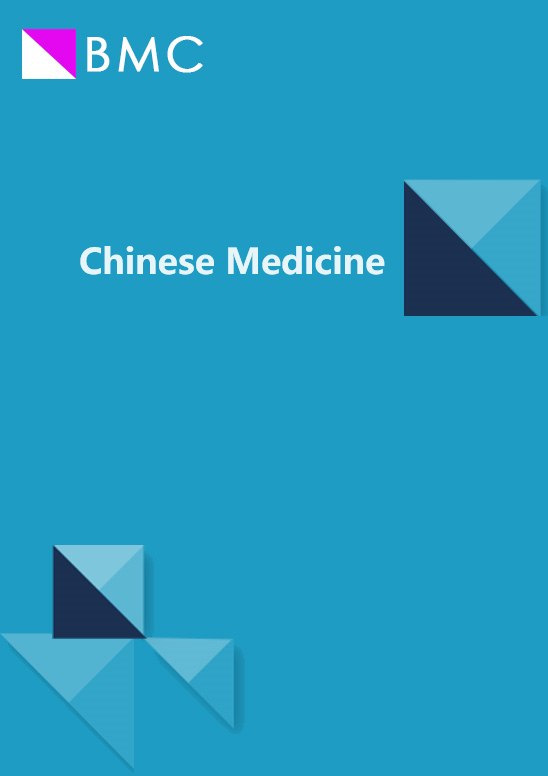DMDD, isolated from Averrhoa carambola L., ameliorates diabetic nephropathy by regulating endoplasmic reticulum stress-autophagy crosstalk
IF 5.3
3区 医学
Q1 INTEGRATIVE & COMPLEMENTARY MEDICINE
引用次数: 0
Abstract
Studies have shown that Averrhoa carambola L. possesses therapeutic potential for diabetes and related complications. However, the specific beneficial effects and molecular mechanisms of 2-dodecyl-6-meth-oxycyclohexa-2,5-diene-1,4-dione (DMDD) isolated from Averrhoa carambola L. on diabetic nephropathy (DN) require further investigation. 80 C57BL/6 J male mice were subjected to a 1-week adaptive feeding, followed by a high-fat diet and intraperitoneal injection of 100 mg/kg streptozotocin (STZ) to construct an in vivo DN model. Additionally, human renal proximal tubular epithelial cells (HK-2) induced by high glucose (HG) were used as an in vitro DN model. The expression levels of epithelial-mesenchymal transition (EMT), endoplasmic reticulum stress (ERS), and autophagy-related proteins in renal tubular cells were detected by Western Blot, flow cytometry, immunofluorescence, and enzyme-linked immunosorbent assay (ELISA) staining. Transcriptome analysis revealed was conducted to elucidate the specific mechanism of by which DMDD mitigates DN by inhibiting ERS and autophagy. HK-2 cells were transfected with IRE1α overexpression lentivirus to reveal the role of IRE1α overexpression in HG-induced HK-2. The experimental data showed that DMDD significantly reduced blood glucose levels and improved renal pathological alterations in DN mice. Additionally, DMDD inhibited the calcium (Ca2+) pathway, manifested by decreased autophagosome formation and downregulation of LC3II/I, Beclin-1, and ATG5 expression. Moreover, in HG-induced HK-2 cells, DMDD suppressed the overexpression of GRP78, CHOP, LC3II/I, Beclin1, and ATG5. Notably, IRE1α overexpression significantly increased autophagy incidence; however, DMDD treatment subsequently reduced the expression of LC3II/I, Beclin1, and ATG5. DMDD effectively inhibits excessive ERS and autophagy, thereby reducing renal cell apoptosis through the IRE1α pathway and Ca 2+ pathway.通过调节内质网应激与自噬的相互关系,从苌弘树中分离出的 DMDD 可改善糖尿病肾病
研究表明,Averrhoa carambola L. 具有治疗糖尿病及相关并发症的潜力。然而,从 Averrhoa carambola L. 分离出来的 2-十二烷基-6-甲氧基环己-2,5-二烯-1,4-二酮(DMDD)对糖尿病肾病(DN)的具体有益作用和分子机制还需要进一步研究。对 80 只 C57BL/6 J 雄性小鼠进行为期一周的适应性喂养,然后进行高脂饮食并腹腔注射 100 毫克/千克链脲佐菌素(STZ),以构建体内 DN 模型。此外,还使用高糖(HG)诱导的人肾近曲小管上皮细胞(HK-2)作为体外 DN 模型。通过 Western Blot、流式细胞术、免疫荧光和酶联免疫吸附试验(ELISA)染色检测了肾小管细胞中上皮-间质转化(EMT)、内质网应激(ERS)和自噬相关蛋白的表达水平。为了阐明DMDD通过抑制ERS和自噬减轻DN的具体机制,研究人员进行了转录组分析。用IRE1α过表达慢病毒转染HK-2细胞,以揭示IRE1α过表达在HG诱导HK-2中的作用。实验数据显示,DMDD能显著降低DN小鼠的血糖水平,改善肾脏病理改变。此外,DMDD还能抑制钙(Ca2+)通路,表现为自噬体形成减少,LC3II/I、Beclin-1和ATG5表达下调。此外,在 HG 诱导的 HK-2 细胞中,DMDD 可抑制 GRP78、CHOP、LC3II/I、Beclin1 和 ATG5 的过表达。值得注意的是,IRE1α的过表达显著增加了自噬的发生率;然而,DMDD处理随后降低了LC3II/I、Beclin1和ATG5的表达。DMDD能有效抑制过度的ERS和自噬,从而通过IRE1α途径和Ca 2+途径减少肾细胞凋亡。
本文章由计算机程序翻译,如有差异,请以英文原文为准。
求助全文
约1分钟内获得全文
求助全文
来源期刊

Chinese Medicine
INTEGRATIVE & COMPLEMENTARY MEDICINE-PHARMACOLOGY & PHARMACY
CiteScore
7.90
自引率
4.10%
发文量
133
审稿时长
31 weeks
期刊介绍:
Chinese Medicine is an open access, online journal publishing evidence-based, scientifically justified, and ethical research into all aspects of Chinese medicine.
Areas of interest include recent advances in herbal medicine, clinical nutrition, clinical diagnosis, acupuncture, pharmaceutics, biomedical sciences, epidemiology, education, informatics, sociology, and psychology that are relevant and significant to Chinese medicine. Examples of research approaches include biomedical experimentation, high-throughput technology, clinical trials, systematic reviews, meta-analysis, sampled surveys, simulation, data curation, statistics, omics, translational medicine, and integrative methodologies.
Chinese Medicine is a credible channel to communicate unbiased scientific data, information, and knowledge in Chinese medicine among researchers, clinicians, academics, and students in Chinese medicine and other scientific disciplines of medicine.
 求助内容:
求助内容: 应助结果提醒方式:
应助结果提醒方式:


